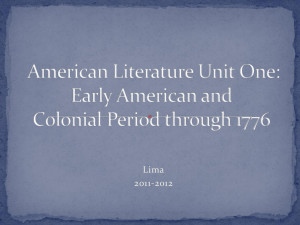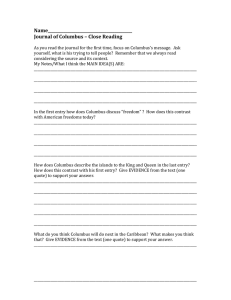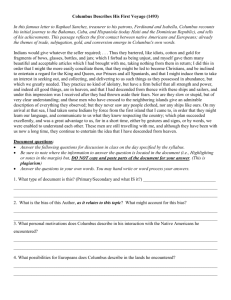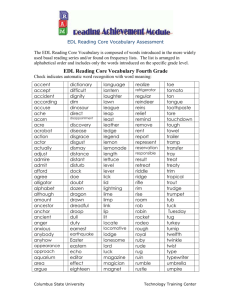Picturing Christopher Columbus and the Colombian Exchange
advertisement
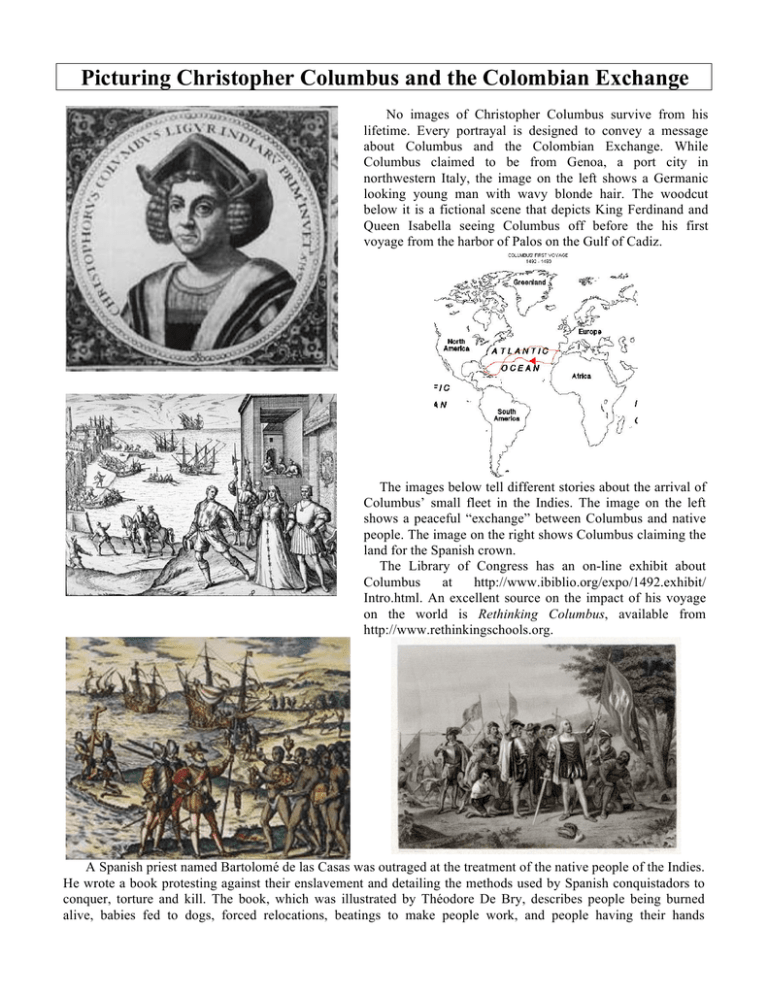
Picturing Christopher Columbus and the Colombian Exchange No images of Christopher Columbus survive from his lifetime. Every portrayal is designed to convey a message about Columbus and the Colombian Exchange. While Columbus claimed to be from Genoa, a port city in northwestern Italy, the image on the left shows a Germanic looking young man with wavy blonde hair. The woodcut below it is a fictional scene that depicts King Ferdinand and Queen Isabella seeing Columbus off before the his first voyage from the harbor of Palos on the Gulf of Cadiz. The images below tell different stories about the arrival of Columbus’ small fleet in the Indies. The image on the left shows a peaceful “exchange” between Columbus and native people. The image on the right shows Columbus claiming the land for the Spanish crown. The Library of Congress has an on-line exhibit about Columbus at http://www.ibiblio.org/expo/1492.exhibit/ Intro.html. An excellent source on the impact of his voyage on the world is Rethinking Columbus, available from http://www.rethinkingschools.org. A Spanish priest named Bartolomé de las Casas was outraged at the treatment of the native people of the Indies. He wrote a book protesting against their enslavement and detailing the methods used by Spanish conquistadors to conquer, torture and kill. The book, which was illustrated by Théodore De Bry, describes people being burned alive, babies fed to dogs, forced relocations, beatings to make people work, and people having their hands amputated if they failed to deliver a monthly quantity of gold to their European conquerors. De Bry was a Flemish Protestant who had been driven into exile by Spain. Students should discuss whether his personal experiences invalidate his work. Source: Théodore De Bry (1598), “Brevísima relación de la destrucción de Las Indias” de Fray Bartolomé de las Casas http://www.holycross.edu/departments/mll/cstone/survey/debry.html. Assignment: Based on your knowledge of Columbus, the impact of the voyage on world history and these images, write a 500 word essay, a poem or a rap explaining whether you believe Columbus Day should be celebrated?
